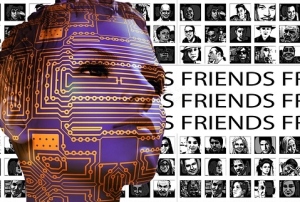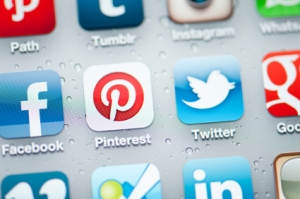Why–and How–Marketers and Operators Should Embrace Millennials Marketing
The increasing significance and impact of Millennials in the marketplace in general and restaurant in particular can be seen as a real plus for those of us who have always recognized the sales generating value of “The Brand.”
Why Millennials Matter
Most sources put Millennials into the 18 to 34-year-old category (book-ended by an older Gen X at 35 to 50 and a younger Gen Z at 2 to 17), and there are now more Millennials (75.3 million) than Baby Boomers. More importantly, Millennials are outspending Baby Boomers with over $1.3 trillion in annual spending.
When it comes to dining, Millennials are more than 20% more likely to eat out in a week and go to a fast casual restaurant than the general population.
How Millennials Are Different—Values and Technology
General indications are that Millennials are less attached to conventional institutions because they are  more likely to be politically independent (50% versus 39% of Gen Xs) and religiously unaffiliated (29% versus 21% Gen X). Not surprisingly, they tend to be distrustful with only 19% believing people can be trusted (31% for Gen Xs). Millennials are also carrying more debt for their age and are not in a hurry to get married (only 26% were married at 32 versus 36% for Gen Xs).
more likely to be politically independent (50% versus 39% of Gen Xs) and religiously unaffiliated (29% versus 21% Gen X). Not surprisingly, they tend to be distrustful with only 19% believing people can be trusted (31% for Gen Xs). Millennials are also carrying more debt for their age and are not in a hurry to get married (only 26% were married at 32 versus 36% for Gen Xs).
However, even though they are facing more economic challenges and might be expected to have less faith in the future, Millennials are optimistic. They are as optimistic as the previous generation which experienced significantly better economic conditions, and 85% have confidence in their future earnings measuring up to their expectations.
Of course, technology and social media are major factors in Millennials’ lives and, therefore, Millennials marketing. They have wider networks of friends, with the typical Millennial having 250 Facebook friends—fifty more than the Gen X counterparts. With Facebook, Instagram, and Snapchat, they are twice as likely to be taking selfies and using the visual channels of social media as Gen X.
Connecting through Millennials Marketing
With these behavioral and attitudinal differences, creating Millennials marketing programs to engage them can be another matter. Roughly two-thirds believe companies don’t know how to talk to them, and they may not trust the message when they do get it. Virtually every (85%) Millennial wants companies and their social media to be authentic (and personal, direct), and 56% are more likely to get their content and information from their social media worlds rather than emails or search and 26% go to news feed sites rather than email and search.
Making your Millennials marketing relevant and engaging can be critical because Millennials typically contact five people when pondering a purchase decision (only three for Gen X). Less than half trust (there’s that word again) “experts” and only 4% admit to actually being influenced by them.
On the other hand, 59% listen to their friends, 35% can be influenced by “strangers,” and 23% (a surprise to me) are influenced by celebrities, especially for apparel, food, luxury goods, and brands. And finally, more trust social media and digital advertising over traditional channels like broadcast and print while about half trust retail websites.
In summary, understanding Millennials and creating Millennials marketing means knowing they are:
- Generally less trustful of others and institutions.
- Optimistic in spite of debts and the Great Recession.
- Relying on friends, word of mouth, social media, the Internet—even celebrities—for information on brands.
- Visual.
- Seeking authenticism.
What Millennials Want
Millennials want their relationship with your brand, company, and restaurant to be authentic, transparent, and trustworthy (not deceptive)—even personal. More than three of four want to identify with what your company stands for (helping to explain popularity of Starbuck’s and Chipotle–before the E. coli scare?). In the best of all worlds, they want to identify with a personality while finding an emotional connection to your very tangible benefits (they also like discounts, free perks, and rewards recognizing their loyalty and relating to your brand).
The most meaningful, sales generating brands deliver an authentic personality (people buy from people) to build relationships and help customers engage with them, and this is even more important to Millennials.
Use your social and content marketing to develop personal relationships while discovering your  Millennial customers’ interests—rather than only blasting away about your products or your services (make an effort to develop the right ratio of relationship focused to direct sales building messaging).
Millennial customers’ interests—rather than only blasting away about your products or your services (make an effort to develop the right ratio of relationship focused to direct sales building messaging).
Ask them questions about how your brand and menu fits into their lives. Show them aspects of your brand which might not be directly related to the product or service but the overall experience (I had one client whose biggest Facebook response was started by a customer commenting on a contemporary artwork in their restaurant). Create a conversation. Coming out with a new menu item? Engage them in the development and they may do the selling for you.
Many of the above themes also relate to menu development. Think of themes like healthy, calorie conscious, low preservatives, natural, authentic, integrity, and local, if possible—without thinking “purist.” Also, a move toward the bolder, more adventuresome, innovative, and customizable might be helpful in capturing the Millennials interest. Consider their overall experience and your brand.
Because it is exactly what they are looking for, the best sales building Millennials marketing programs leverage the chance to create relationships and engage with Millennials while delivering products and services to this financially powerful and restaurant happy generation.
[Notes: Facts and perspectives for this post have come from the Pew Research Center, MENG’s Digital Marketing Survey, a JustJump Marketing MENGinar, “15 Economic Facts about Millennials” from the Council of Economic Advisors, Morgan Stanley’s Here Come the Millennials, and the Boston Consulting Group’s Perspectives: “How Millennials are Changing the Face of Marketing Forever.”
A very similar blog post first appeared in the MENG Blog on December 15th 2015.]


Trackbacks